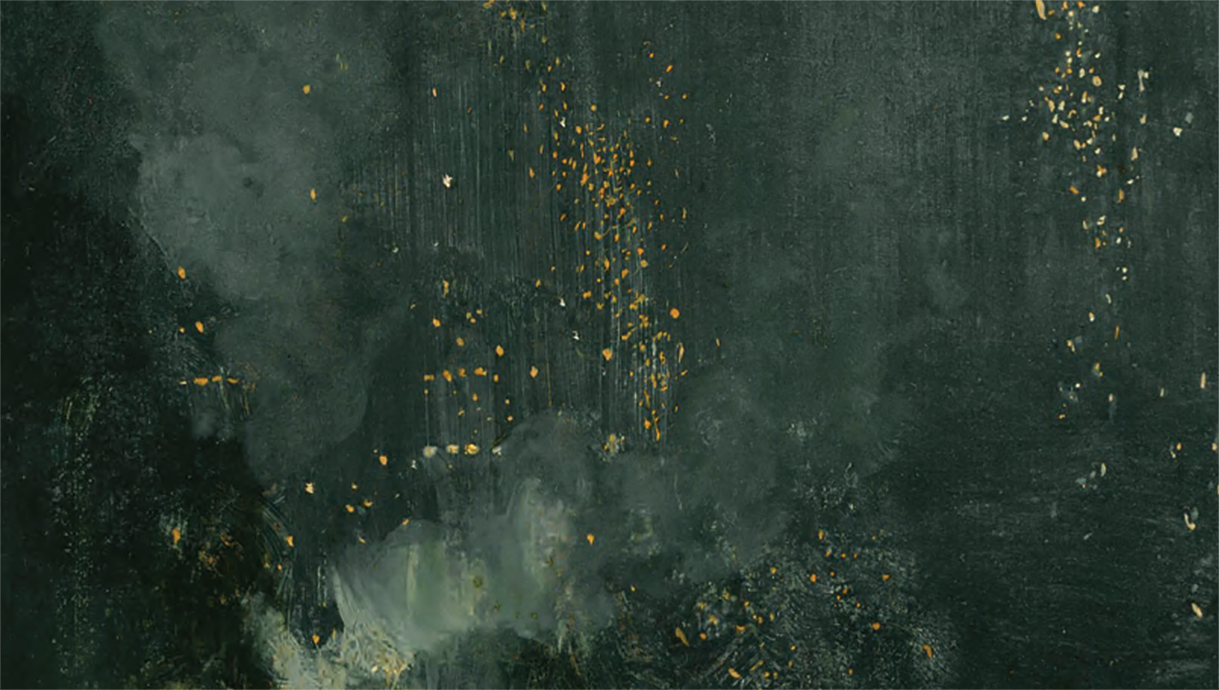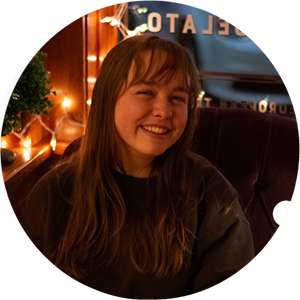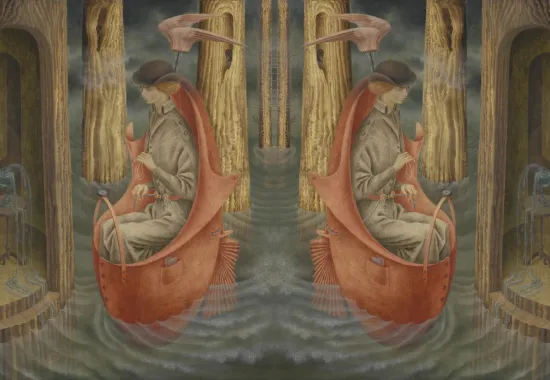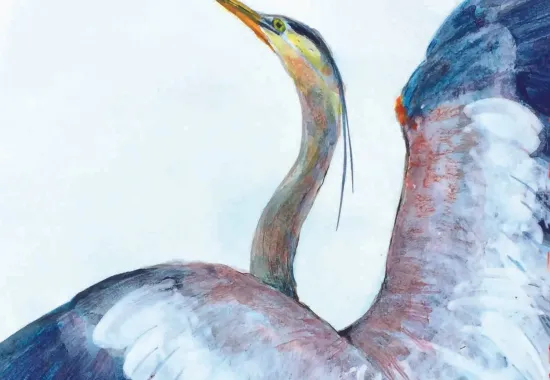Review: Lanterns in the Night Market by Mary Morris
“Would you like to come with me? / Take my hand. The past is gone,” is the beckoning that opens Mary Morris’s fourth poetry collection, Lanterns in the Night Market. The collection is an invitation into reflected wanderlust, and with Morris’s humorous observations, the reader experiences typical travel woes, such as in the poem “LaGuardia,” “There are no angels in airports / though demons linger / among bars.” There is also a deeper exploration of time in place with the dual cycling (history and Ferris wheels) in “London,” “...the London Eye spins above / the River Thames. / History shifts in its waters. Sonnets / of Shakespeare repeat in theaters.” We follow her eloquent speakers from Bangkok to Madrid with poems deeply rooted in place. Not only the physical locations, but the more emotional journeys that we take while navigating travel. Do we feel out of place, or precisely in place? What if the line between mundane and mythical is thinner than we might realize? Mary Morris shines in her ability to make a familiar place magical and, conversely, an unfamiliar place feel like home.

Her use of pronouns throughout the collection plays a major role in striking that balance. The second person is used often in the collection in a way that felt centering; no matter my own experience with the topic of the poem, Morris compelled me to see it in an entirely different light. In “Writers in Exile,” something as mundane as the hands we were born with become “like small candles lit in the dark” when looked at through an X-ray, magic in motion as Morris urges the reader to “Imagine them becoming impulse / or the way you move // your hand as a wand / through another’s hair.” A simple suitcase becomes animate in “Ode to a Suitcase,” with “cracked leather stitched like a wound” as Morris “unfasten[s] your teeth, open[s] your jaw” to reveal the bounty of sights and scents within. In each of these poems, as well as many others, the second-person you places the reader into lives they’ve likely never lived, a remarkable and consistent feat given the breadth of experience covered in the collection.
The third section’s poems focus in large part on Mexico, where Morris used to live. If reading the first two sections’ descriptions of far-flung and unfamiliar destinations is immersive, the third section deepens the immersion via its portrayal of a place the speaker can call home. The “you” pronoun becomes instructive; the speakers feel justified in how best to experience Mexico in only the way a resident can, and pass that knowledge on to the reader. As a result, the poems let the reader in on an exclusive club of sorts, opening the door to a life of landmarks and collective memories as if we are locals, like in “I Will Meet You At The Gateway”:
Let us join
beyond the blood
in the body you died in.
Meet me. I will be there.
At the quarry of stone,
sunflowers and ashes.
Morris’s signature conjuring of image doesn’t fall flat in the wake of this new specificity of place. Readers who have been to Mexico may appreciate the vivid descriptions of the monarch butterfly migration in “Displacement,” their wings “hing[e] of small gold fires.” Poems like “Vernacular” place themselves in the mouths of a traveler learning a language: flowers turn “into flores and green tastes verde,” where “la gente, the people, are gentle.” A personal favorite comes from an homage to Frida Kahlo and her painting entitled “The Dream,” in which Morris deftly manages to combine her own style with the iconic Kahlo’s work without sacrificing one over the other. The prose poem juggles the same emotions, and haziness of the gray areas between them–life and death, whimsy and solemnity, comfort and uncertainty–as the painting does, resulting in a touching tribute: “My nemesis, already we are sleeping together, dreaming above a field of lilies, flying above the house in clouds, our bones wired together by dynamite.”
As a whole, Lanterns in the Night Market tackles similar themes as the poem “Questions of Travel” by Elizabeth Bishop, a poet who often took inspiration from life as an expat and–as the aforementioned poem’s title suggests– travel. One line from Bishop’s poem reads “What childishness is it that while there's a breath of life / in our bodies, we are determined to rush / to see the sun the other way around?” But Bishop answers her own skeptical question, “But surely it would have been a pity / not to have seen the trees along this road.” Thank goodness that Mary Morris agrees. Through Morris’s own rushing to see the sun from every way around and her meticulous attention to the trees and roads of the world, we are beckoned in to experience the most precious parts of humanity, of nature, of the discovery of all that might bring us even a little closer to the shimmering, lively world that Morris seems so at home in. “Admit it, say you want to. // You have always sensed / a longing,” she coaxes in “Invitation,” “Would you like to come along?” Anyone should be so lucky.
Recommended
A Review of Portable City by Karen Kovacik
A Review of Haircuts for the Dead by William Walsh
A Review of Birdbrains: A Lyrical Guide to the Washington State Birds






